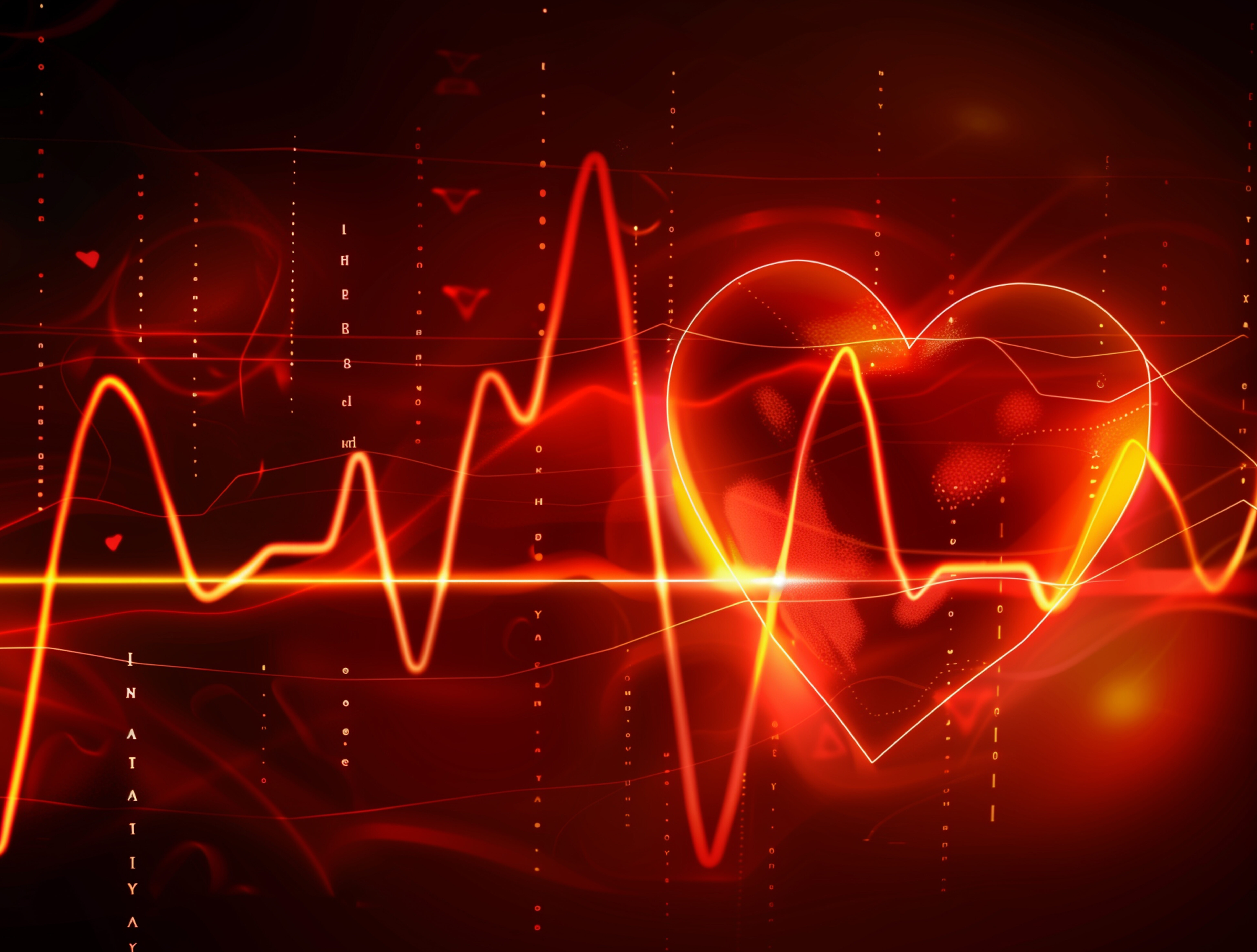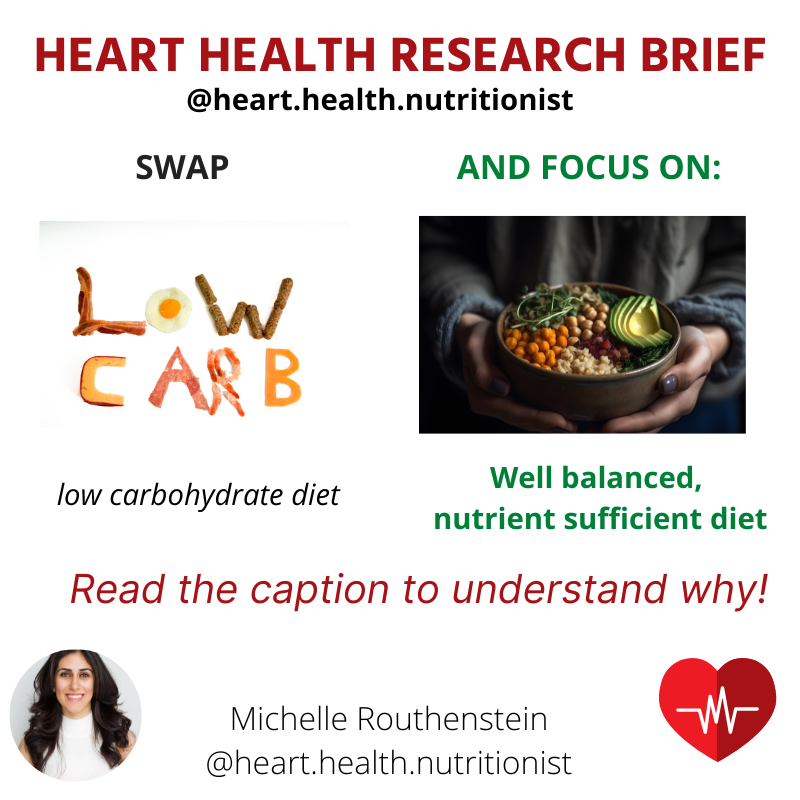Atrial fibrillation (Afib) is a common heart rhythm disorder characterized by rapid and irregular beating of the atria (the upper chambers of your heart). Left untreated, Afib can lead to blood clots, stroke, heart failure, and other heart-related complications.
One of the most impactful things you can do is adjust your diet pattern. In this article, we’re focusing on foods to avoid with Afib that could make it worse.
The Link Between Nutrition and Afib
The nutritional quality of your diet has a ripple effect throughout all aspects of your health. The food choices you’re making can either benefit or potentially worsen existing conditions, like when you’re living with Afib. They can also influence your risk of developing future health concerns.
Less healthy foods, like ultra-processed items, are high in added sugar, sodium, saturated fat, and empty calories. A diet based on these isn’t just nutrient-poor but also pro-inflammatory, which can make your heart work harder than it already has to when living with Afib.
On the other hand, healthier food choices will provide an array of vitamins, minerals, fiber, and antioxidants to support your heart and overall wellness.
5 Types of Foods to Avoid with Afib
Below are 5 common Afib food triggers. Consider how often you’re eating them and whether there are areas for improvement in your diet.
1. High-Sodium Foods
Excessive sodium intake can increase blood pressure and promote fluid retention, which further strains your heart. High blood pressure is a significant risk factor for Afib because it makes the heart work harder.
Plus, high sodium intake can affect electrolyte levels, which are important for maintaining normal heart function and rhythm.
Some of the worst Afib food triggers include:
- Frozen convenience dinners
- Processed meats, like hot dogs, bacon, and sausage
- Fast food items, like cheeseburgers, tacos, and French fries
- Adding a lot of salt when you cook at home
Some of these types of foods may also cause acid reflux. This matters because acid reflux can increase the risk of Afib attacks, highlighting the link between gut health and heart health. If you have acid reflux trigger foods, they should be avoided as well.
2. Foods High in Saturated Fat
Eating a diet high in saturated fats can worsen Afib. Examples include red and processed meats, like bacon and sausage, and coconut and palm oil (look for these on ingredient lists of packaged foods).
Saturated fats raise LDL cholesterol, promoting atherosclerosis — plaque buildup in your arteries. This makes it harder for your heart to circulate blood efficiently.
One study in 33,665 women ≥45 years old without cardiovascular disease and Afib at baseline found that high saturated fat but low in monounsaturated fat intake was associated with greater risk of persistent or chronic, but not paroxysmal (sporadic) Afib.
Additionally, a diet high in saturated fats can lead to obesity, which is another significant risk factor for Afib, as excess body weight puts additional strain on the heart and can disrupt normal rhythm.
Along these lines, research suggests an association between low-carb diets and a higher incidence of Afib. Many low-carb diets tend to be high in saturated fat, though a 2019 study says it doesn’t matter what type of fat is used to replace carbs, reiterating the importance of overall balance and nutritional adequacy.
3. Caffeine
The main reason most people enjoy a cup of coffee is the same reason individuals with Afib may need to pay extra attention to how drinking it makes you feel. It contains caffeine, a natural stimulant (and Afib food trigger). While coffee can be a nice way to get your neurons firing in the morning, it may also trigger irregular heartbeats for some people.
Some evidence suggests that 2-3 cups per day of black coffee shouldn’t worsen arrhythmias for most people. However, more research is needed — especially among those treated for Afib.
If you feel triggered by coffee or other caffeinated beverages, it may be better to choose caffeine-free drink options when you have Afib, such as decaffeinated herbal teas, plain or fruit-infused water, and unsweetened seltzers.
The bottom line here is that personalized recommendations are important. If you need help assessing your triggers and ensuring a nutrient adequate Afib diet, consulting with a cardiovascular dietitian can be helpful.
4. Added Sugars
Added sugar can promote inflammation and oxidative stress. In terms of Afib, eating this way can promote damage to your heart tissue and put additional strain on your heart.
Additionally, excessive sugar intake can play a role in the development of insulin resistance, which can be a risk factor for Afib and type 2 diabetes. This is because insulin resistance and Afib share several interconnected physiological and pathological mechanisms. For instance, low grade inflammation, electrolyte imbalances, endothelial dysfunction, and chronic high blood sugar levels can affect the heart’s electrical system and structural integrity, increasing the risk of developing Afib.
Try to minimize your intake of added sugars by avoiding ultra-processed foods like soda, pastries, packaged snacks like potato chips and cookies, and fast food items.
5. Alcohol
Alcohol can directly influence heart rhythm and increase the likelihood of Afib episodes and recurrence. Drinking excessively can also lead to something called “holiday heart syndrome,” which triggers acute Afib among people who don’t have existing heart disease.
Drinking and atrial fibrillation are a bad combo because alcohol can increase blood pressure, disrupt sleep, and potentially interfere with normal electrolyte balance. It’s also calorie-dense and may contribute to weight gain, making your heart work harder.
The different types of alcohol (wine, beer, spirits) may affect Afib differently, but at the end of the day, drinking in excess is what’s most detrimental for heart health.
Interestingly, a 2022 dose-response meta-analysis of over 10 million people found a linear relationship between Afib risk and alcohol consumption in men, while in women there’s a potential nonlinear J-shaped relationship. In other words, a low alcohol intake wasn’t associated with the development of Afib, but moderate alcohol intake significantly increased Afib risk among males.
A 2020 study in the New England Journal of Medicine found that when people with Afib stopped drinking alcohol, they experienced fewer Afib recurrences. And another study concluded that it doesn’t matter so much what type of alcohol you’re drinking, but how much when it comes to Afib consequences.
There may also be something to be said about alcohol tolerance with Afib. For example, I’ve seen clients with Afib episodes triggered by taking a single sip of alcohol. Whereas others may consume one alcoholic beverage a few times per week and have no problems.
Overall, choose and monitor your alcohol intake wisely, especially if you have Afib. And if you don’t drink already, there’s no need to start now.
Nutritional Adequacy for Managing AFib
Now that we’ve covered some foods to avoid with Afib, you’re probably wondering what additions you can make to your diet in their place.
One of the most important factors in supporting a healthy heart rhythm is nutritional adequacy. Certain nutrient deficiencies can trigger Afib because of their involvement in preventing heart rhythm irregularities, like magnesium, potassium, and vitamin D.
Boosting your intake of minimally processed foods, especially fruits, vegetables, nuts, seeds, whole grains, legumes, and other lean proteins, is the best way to achieve nutritional adequacy in your diet. Omega-3 fatty acids also appear protective against Afib; however, it’s best to get these from dietary sources (like fatty fish), as high dose supplementation may actually promote arrhythmias.
Eating a well-rounded, nutrient-dense diet also supports healthy weight management, reducing inflammation, and improving blood sugar control, which benefits heart health.
Afib generally has multiple underlying nutritional factors. I can help you evaluate your specific scenario, identify Afib food triggers, and provide personalized science-based nutrition recommendations for deficiencies, gut issues, insulin resistance, and more to help your Afib into remission. To learn more about my 1:1 counseling click here.
References
- Juul F, Deierlein AL, Vaidean G, Quatromoni PA, Parekh N. Ultra-processed Foods and Cardiometabolic Health Outcomes: from Evidence to Practice. Curr Atheroscler Rep. 2022;24(11):849-860. doi:10.1007/s11883-022-01061-3
- Goddard J, Speights CJ, Borganelli M. Salt as a Trigger for Atrial Tachycardia/Fibrillation. Cureus. 2022;14(6):e26168. Published 2022 Jun 21. doi:10.7759/cureus.26168
- Mohamed A, Ochoa Crespo D, Kaur G, et al. Gastroesophageal Reflux and Its Association With Atrial Fibrillation: A Traditional Review. Cureus. 2020;12(9):e10387. Published 2020 Sep 11. doi:10.7759/cureus.10387
- Chiuve SE, Sandhu RK, Moorthy MV, Glynn RJ, Albert CM. Dietary Fat Intake Is Differentially Associated with Risk of Paroxysmal Compared with Sustained Atrial Fibrillation in Women. J Nutr. 2015;145(9):2092-2101. doi:10.3945/jn.115.212860
- Patel KHK, Reddy RK, Sau A, Sivanandarajah P, Ardissino M, Ng FS. Obesity as a risk factor for cardiac arrhythmias. BMJ Med. 2022;1(1):e000308. Published 2022 Oct 19. doi:10.1136/bmjmed-2022-000308
- Zhang S, et al. Low‐Carbohydrate Diets and Risk of Incident Atrial Fibrillation: A Prospective Cohort Study. Journal of the American Heart Association. 2019;8:e011955
- Surma S, Romańczyk M, Filipiak KJ, Lip GYH. Coffee and cardiac arrhythmias: Up-date review of the literature and clinical studies. Cardiol J. 2023;30(4):654-667. doi:10.5603/CJ.a2022.0068
- Prasad K, Dhar I. Oxidative stress as a mechanism of added sugar-induced cardiovascular disease. Int J Angiol. 2014;23(4):217-226. doi:10.1055/s-0034-1387169
- Rafaqat, S., Rafaqat, S. & Rafaqat, S. Pathophysiological aspects of insulin resistance in Atrial Fibrillation: novel therapeutic approaches. Int J Arrhythm 23, 6 (2022). https://doi.org/10.1186/s42444-021-00057-5
- Voskoboinik A, Marcus GM. The Impact of Alcohol Intake on Atrial Fibrillation. Curr Cardiol Rep. 2020;22(10):111. Published 2020 Aug 8. doi:10.1007/s11886-020-01369-z
- Jiang H, Mei X, Jiang Y, et al. Alcohol consumption and atrial fibrillation risk: An updated dose-response meta-analysis of over 10 million participants. Front Cardiovasc Med. 2022;9:979982. Published 2022 Sep 30. doi:10.3389/fcvm.2022.979982
- Voskoboinik A, et al. Alcohol Abstinence in Drinkers with Atrial Fibrillation. N Engl J Med 2020;382:20-28. https://www.nejm.org/doi/full/10.1056/NEJMoa1817591
- Csengeri D, Sprünker NA, Schnabel RB. Alcohol and atrial fibrillation: dose matters, not so much the type. Eur Heart J. 2021;42(25):2507-2508. doi:10.1093/eurheartj/ehab180
- Negru AG, Pastorcici A, Crisan S, Cismaru G, Popescu FG, Luca CT. The Role of Hypomagnesemia in Cardiac Arrhythmias: A Clinical Perspective. Biomedicines. 2022;10(10):2356. Published 2022 Sep 21. doi:10.3390/biomedicines10102356
- Rafaqat, S., Rafaqat, S., Khurshid, H. et al. Electrolyte’s imbalance role in atrial fibrillation: Pharmacological management. Int J Arrhythm 23, 15 (2022). https://doi.org/10.1186/s42444-022-00065-z
- Barsan M, Brata AM, Ismaiel A, et al. The Pathogenesis of Cardiac Arrhythmias in Vitamin D Deficiency. Biomedicines. 2022;10(6):1239. Published 2022 May 26. doi:10.3390/biomedicines10061239
- Wu J, et al. Association of Plasma Phospholipid Long-Chain Omega-3 Fatty Acids With Incident Atrial Fibrillation in Older Adults. Circulation. 2012;125:1084–1093.

